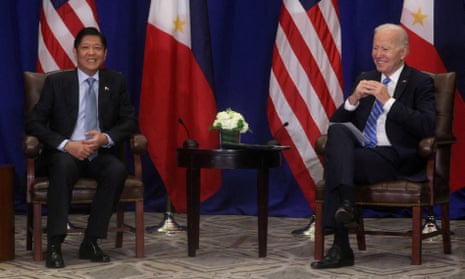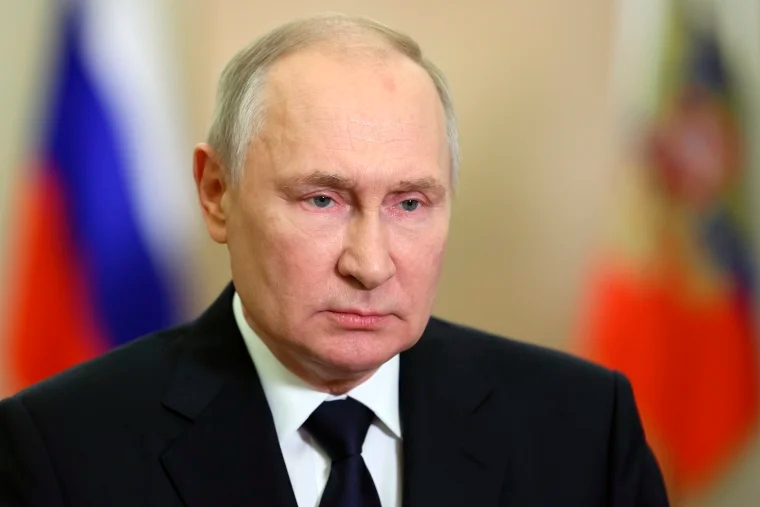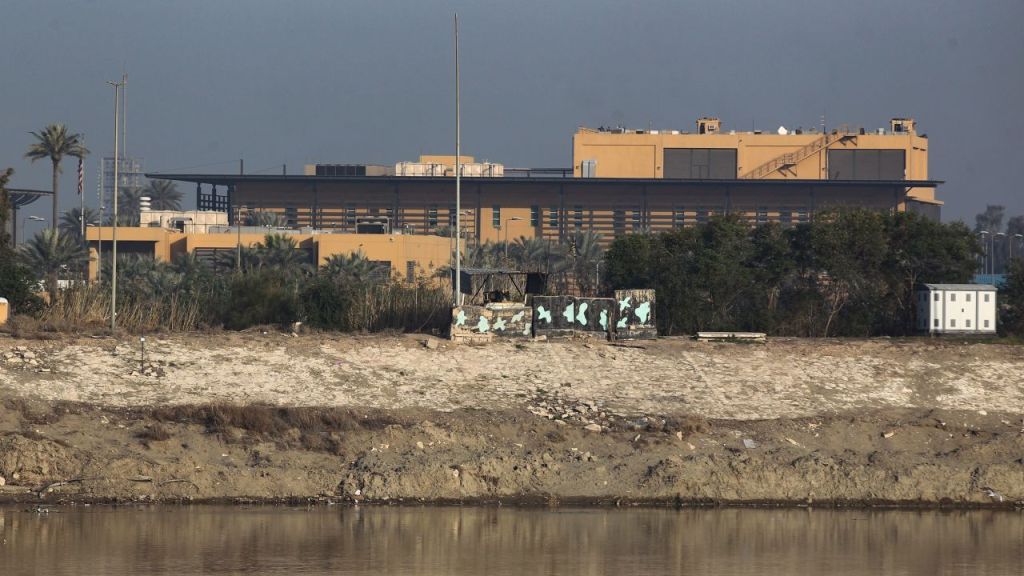The president of the Philippines is meeting his US counterpart in Washington as the two countries draw closer together against what they say is growing aggression and harassment by China.
Ferdinand Marcos Jr and Joe Biden will meet in the Oval Office on Monday during the Philippine president’s four-day US tour. They are expected to discuss the security situation, with the US hoping to strengthen longstanding ties between the two nations as it battles Beijing for influence in Asia.
The US has been a vocal supporter of the Philippines against China’s recent actions, saying on Sunday that an attack on Philippine security forces or a public vessel would “invoke US mutual defence commitments”.
It came in response to what the US described as “aggressive tactics” by the Chinese coastguard recently.
On 23 April, a Chinese coastguard ship blocked a Philippine patrol vessel from entering into the disputed Second Thomas Shoal. Journalists from several outlets had joined the Philippine patrol and filmed what the Associated Press described as a “near collision”, with the Chinese vessel moving suddenly to cut off the Philippine ship.
It was the latest maritime incident between the two countries in the South China Sea. Chinese authorities have repeatedly cut off access to the shoal, where a small contingent of Filipino soldiers are stationed on a second world war-era ship that was deliberately grounded in 1999 by the Philippines to cement its claim to the atoll.
Beijing has increased its expansionist activities in disputed areas of the South China Sea, much of which it claims sovereignty over, despite international court rulings in 2015-16 finding its claim had no legal basis. It has led to numerous confrontations and incidents, particularly the Philippines. The Philippines has filed more than 200 diplomatic protests against China since last year, including at least 77 since Marcos took office in June.
While meeting Marcos in Manila on Saturday, China’s foreign minister, Qin Gang, said his country was willing to work with the Philippines to resolve differences.
The South China Sea tensions come at the same time as Beijing is building its military and preparing for a potential forceful annexation of Taiwan. The potential for conflict over Taiwan – which counts the US as one of its biggest backers despite not having formal diplomatic ties – is forcing nations across east and south-east Asia to assess relations with China and the US.
Japan and South Korea are among those to more vocally stand against Beijing’s aggression. But other countries have been more cautious or unwilling to push against China.
“The Code of Conduct discussions have stalled, and Asean is not coming together to confront the threat to one of its members’ sovereignty, so countries like the Philippines will rely on the US, and to a lesser extent Japan, to build up their deterrence capabilities,” said Drew Thompson, a visiting senior research fellow at the National University of Singapore’s Lee Kuan Yew school of public policy.

Adm Samuel Paparo, the commander of the US Pacific Fleet, told Nikkei last week that the Philippines had not requested support from the US Coast Guard or navy ships in relation to its run-in with China in disputed waters. He said, however, that the US stood “ready to come to the Philippines’ assistance in their exercise of their sovereign rights”.
On Monday, Marcos said the Philippines would not become “a staging post” for any foreign military. But his government and the US have grown much closer, chasing stronger defence ties as Manila seeks to increase its defensiveness against Beijing’s regional aggression, and the US looks to strengthen its presence around Taiwan.
The Philippines has increased US access to Philippine military bases. Last month, the largest ever balikatan – “shoulder to shoulder” – joint military drills were staged by the US and the Philippines.
Amanda Hsiao, a China analyst with the Crisis group, said Beijing was concerned with the deepening US-Philippines relationship and the Marcos administration’s decision to grant the US increased access to military bases.
“Moreover, Beijing likely believes that closer US-Philippines ties have emboldened Manila to pursue a firmer approach in the South China Sea. By sending a clear signal of the risks involved, Beijing is trying to deter Manila from continuing to go down that road,” she said.




Leave a comment